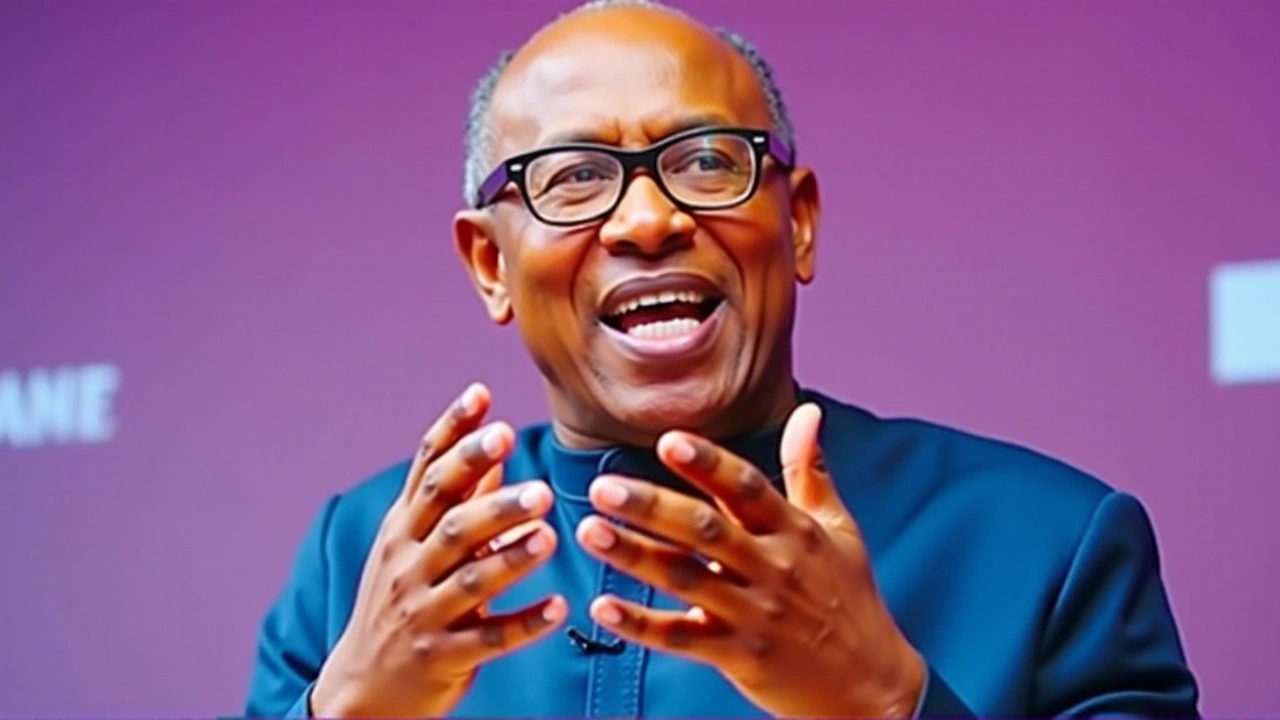Peter Obi Voices Unease Over Police Summons to NLC Leader Joe Ajaero
In recent political developments, former Anambra State governor Peter Obi has spoken out against the police summons issued to Joe Ajaero, the President of the Nigeria Labour Congress (NLC), heightening concerns over the potential implications for labour relations in the country. The situation, according to Obi, requires careful handling given Ajaero’s influential role as a leading representative of Nigeria’s workforce and an essential mediator in discussions on labour disputes and broader national matters.
Circumstances Surrounding the Summons
The police summons, dated August 19, came as a shock to many, alleging serious offenses such as terrorism financing and cybercrime against Joe Ajaero. The letter, signed by ACP Adamu Muazu on behalf of the Deputy Commissioner of Police, Intelligence Response Team, firmly warned of possible arrest if Ajaero failed to comply with the order. These allegations carry significant weight, and the manner in which they are addressed could have far-reaching consequences for the nation’s labour-sector dynamics.
Peter Obi’s response to the summons is deeply rooted in his concern for maintaining democratic order and the stability of labour relations in Nigeria. He underscored the importance of due process and judicial fairness, emphasizing that the government should eschew heavy-handed tactics that could exacerbate tensions. “The rule of law and the laws of evidence should be observed,” said Obi, urging both governmental bodies and the labour force to adhere to principles that uphold justice and democratic norms.
Labour’s Reaction and Potential Consequences
The NLC responded promptly to the police summons by convening an emergency National Executive Council meeting. During this session, the council expressed its solidarity with Ajaero, resolving to take drastic actions, including a nationwide shutdown, if he were to be detained or arrested. Such a move would have significant implications for the country, potentially disrupting economic activities and escalating the existing tension between the government and workers.
In their deliberations, the council encouraged Ajaero to honour the police invitation, showcasing a willingness to engage with the authorities. However, they also made it clear that they would staunchly defend their leader against any perceived injustice. This balancing act of cooperation and readiness to protest underscores the delicate nature of the situation and the critical role the NLC plays in advocating for workers’ rights and interests.
Historical Context and Broader Implications
This incident marks yet another chapter in the historically complex relationship between Nigerian authorities and labour unions. The NLC, as a major force within the country’s socio-political landscape, has often found itself at odds with governmental decisions perceived to undermine workers’ welfare. Labour leaders like Joe Ajaero are pivotal in these dynamics, serving both as representatives and negotiators for the labor force, which includes millions of workers across various sectors.
Peter Obi’s cautionary stance is reflective of a broader concern regarding governance practices in Nigeria. His call for restraint and adherence to due process highlights a fear that autocratic measures could further strain an already fraught relationship. The labour force, feeling cornered by allegations and potential arrests, might resort to more aggressive forms of protest, pushing the country towards greater instability.

The Way Forward
As this situation unfolds, it is imperative for all stakeholders to approach it with sensitivity and a commitment to democratic principles. For the government, this means ensuring that any legal actions taken against Joe Ajaero are transparent and just, avoiding the appearance of persecution or suppression of dissent. For the labour force, it means navigating this challenge with a focus on dialogue and lawful protest, emphasizing their role as stewards of workers' rights within a democratic framework.
Indeed, the outcome of this encounter between the police and the NLC will be closely watched, not just within Nigeria but by international observers as well. The response will signal the country's approach to justice, governance, and the treatment of labour leaders. In these times of global interconnectedness, the actions taken in Nigeria will resonate far beyond its borders, impacting its international standing and relationships.
Ultimately, Peter Obi’s intervention serves as a reminder of the pivotal role that leaders and influencers must play in navigating crises. By advocating for due process and cautioning against harmful practices, he is calling for a balance that upholds judicial fairness while seeking to preserve the relative harmony between the government and the labour force. This balance is crucial for the continued progress and stability of Nigeria.


Comments
Liliana Carranza
Whoa, this whole saga feels like a roller‑coaster of drama and principle! 🌟 Peter Obi’s call for calm is the kind of pep‑talk we need when the stakes get this high.
Let’s keep the conversation alive, respect due process, and make sure every voice-from the factory floor to the policy hallway-gets heard. Unity and fairness can win the day!
August 23, 2024 at 04:28
Jeff Byrd
Oh great, another “summons” to keep the drama fresh. Because nothing says “progress” like a police letter dressed up as a political statement. Guess the NLC will have to decide whether to sit down or stand up-again.
August 23, 2024 at 21:08
Joel Watson
The recent police summons directed at Joe Ajaero epitomizes a troubling convergence of security apparatus and labour advocacy. Historically, the Nigerian state has oscillated between conciliatory overtures and coercive interventions when faced with organised labour dissent. In this instance, the alleged charges of terrorism financing and cybercrime appear, at first glance, to be disproportionate to the ordinary functions of a union leader. Such disproportion raises legitimate concerns about the proportionality of state responses and the safeguarding of civil liberties. Moreover, the timing of the summons, coinciding with heightened negotiations, suggests an attempt to exert psychological pressure on the NLC hierarchy. Peter Obi’s admonition that “the rule of law and the laws of evidence should be observed” is both a reminder and a demand for procedural rigor. From a jurisprudential perspective, due process is not merely a formality but a cornerstone of democratic legitimacy. If the police proceed without transparent evidentiary standards, they risk eroding public confidence in law enforcement. The NLC’s contingency plan to launch a nationwide shutdown reflects the urgency with which labour leaders view any threat to their leadership. Nonetheless, a pre‑emptive strike may exacerbate economic instability and alienate moderate stakeholders. It is therefore imperative that both parties engage in dialogue grounded in mutual respect rather than unilateral force. International observers are already noting the potential ramifications for Nigeria’s investment climate and human‑rights record. A calibrated response that respects both security concerns and workers’ rights could set a constructive precedent for future disputes. The broader lesson concerns the delicate balance between state authority and the autonomy of civil society organisations in a vibrant democracy. Ultimately, a transparent investigation, coupled with sincere negotiation, will determine whether this flashpoint becomes a catalyst for reform or a regression into repression.
August 24, 2024 at 13:48
Chirag P
When we look at the broader picture, it’s clear that respecting cultural norms and institutional procedures is vital for any peaceful resolution. The NLC’s role in representing workers across Nigeria is a cornerstone of our democratic fabric, and any action that strains that relationship should be handled with the utmost care.
August 25, 2024 at 06:28
RUBEN INGA NUÑEZ
Let’s be blunt: if the police think they can intimidate Ajaero without solid evidence, they’re gravely mistaken. The rule of law is not optional, and any deviation sets a dangerous precedent that threatens everyone’s rights.
August 25, 2024 at 23:08
Michelle Warren
Another sumsum and they act like it’s some big scandal.
August 26, 2024 at 15:48
Christopher Boles
Stay hopeful, folks. If everyone keeps pushing for dialogue and fairness, this can be a chance to strengthen our labor rights without blowing up the economy.
August 27, 2024 at 08:28
Crystal Novotny
One must wonder whether the summons is a genuine legal maneuver or merely a symbolic gesture aimed at unsettling the labor movement.
August 28, 2024 at 01:08
Reagan Traphagen
It’s obvious the government is pulling strings behind the scenes, trying to silence dissent under the pretense of security. Every shuffle of a police file in this case could be part of a larger agenda to curb independent unions.
August 28, 2024 at 17:48
mark sweeney
Honestly, this is just another example of elite folks playing politics with the working class. Who cares about “due process” when the real game is about power.
August 29, 2024 at 10:28
randy mcgrath
We should reflect on the ethical implications of state overreach; a society that respects its labor leaders fosters deeper civic trust.
August 30, 2024 at 03:08
Frankie Mobley
For anyone looking for a straightforward path forward: encourage both sides to keep communication lines open, share evidence transparently, and avoid any knee‑jerk actions that could hurt the broader economy.
August 30, 2024 at 19:48
ashli john
Let’s keep the vibe positive-support each other, stay informed, and remember that calm, consistent dialogue is our strongest tool.
August 31, 2024 at 12:28
Kim Chase
Look, we all want peace, so let’s not inflame the sitiation. If we can find a mutual take away, maybe we can avoid the whole shocon.
September 1, 2024 at 05:08
David Werner
The pattern is clear: clandestine forces manipulate legal mechanisms to silence true representation. It’s a dramatic reminder that we must stay vigilant against hidden agendas.
September 1, 2024 at 21:48
Paul KEIL
From a governance standpoint, the intertwining of security protocols with labor negotiation dynamics introduces systemic risk vectors that could destabilize macro‑economic equilibria.
September 2, 2024 at 14:28